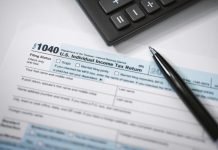
If you were planning to buy a home or refinance one you already own, you can expect to encounter a lot of paperwork. But here’s one thing you probably didn’t know: Tax returns aren’t always required.
If you are a W-2 wage earner, there is a smaller chance you’ll need to provide tax returns than if you’re self-employed. If you’re self-employed, the only way a lender can determine your income is by examining your tax returns. As a self-employed worker, these documents show how much you took home versus your net income. There are some situations where you can get away with using a year’s worth of tax returns, such as when you transition from being full-time employee at a company to being self-employed.
Automated Underwriting Findings
Mortgage lenders will ask for two years of tax returns, plus two years of W-2s and pay stubs from the last 30 days. Every mortgage in America sold on the secondary market is run through automated underwriting, software systems that crunch data and let lenders know your risk in terms of repaying the loan.
If you are a W-2 wage earner and the automated underwriting findings do not require tax returns, you may not need to provide returns at all in order to close on a home.
To be clear, we are discussing the average W-2 wage earner. Any of the following could trigger needing two years of tax returns despite your employee status:
- Rental income
- Social Security income
- Pension income
- Schedule C income beyond your normal W-2 job
- Partnership in a business or another entity
Other Things to Keep in Mind
When you apply for a loan, it’s generally a good idea to provide two years of tax returns, two years of W-2s and the 30-day pay stubs all lenders require. However, there is a saying in mortgage lending that applicants should only provide “what is needed.” Providing only what’s asked for can go a long way, as there are fewer documents to scrutinize. That said, automated underwriting dictates what documentation you must provide to obtain financing.
Some banks also have additional requirements, so even if your loan does not require tax returns, their individual banking policies might. Such requirements are due to the bank’s relationship with Fannie Mae and Freddie Mac, or its particular appetite for risk. A good rule of thumb is to provide the bare bones requirements so there are no questions as to whether you qualify.
The key is to work with a mortgage lender who has a common sense approach to financing rather than one who promises ultra-low rates but is so risk-adverse that you are continuously asked to furnish more paperwork and your loan never ends up closing escrow.
Remember, a good credit score can help you secure an affordable mortgage. As such, it’s a good idea to see where you stand before you start applying. You can check your credit scores for free each month on Credit.com.
This article originally appeared on Credit.com and was written by Scott Sheldon.










